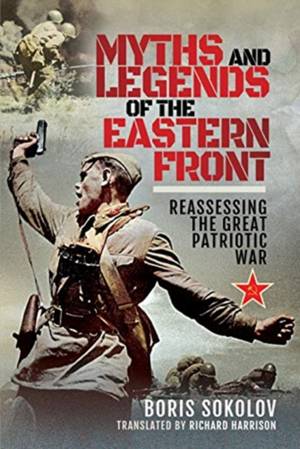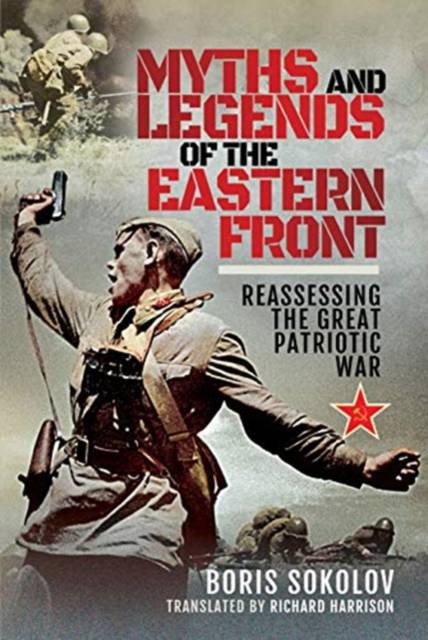
- Afhalen na 1 uur in een winkel met voorraad
- Gratis thuislevering in België vanaf € 30
- Ruim aanbod met 7 miljoen producten
- Afhalen na 1 uur in een winkel met voorraad
- Gratis thuislevering in België vanaf € 30
- Ruim aanbod met 7 miljoen producten
Zoeken
Myths and Legends of the Eastern Front
Reassessing the Great Patriotic War
Boris Sokolov
Hardcover | Engels
€ 34,95
+ 69 punten
Omschrijving
The memory of the Second World War on the Eastern Front - still referred to in modern Russia as the Great Patriotic War - is an essential element of Russian identity and history, as alive today as it was in Stalin's time. It is represented as a defining episode, a positive historical myth that sustains the Russian national idea and unites the majority of Russian citizens.
As a result, as Boris Sokolov shows in this powerful and thought-provoking study, the heroic and tragic side of the war is highlighted while the dark side - the incompetent, negligent and even criminal way the war was run - is overlooked. Although almost eighty years have passed since the defeat of Nazi Germany, he demonstrates that many of the fabrications put forward during the war and immediately afterwards persist into the present day.
In a sequence of incisive chapters he uncovers the truth about famous wartime episodes that have been consistently misrepresented. His bold reinterpretation should go some way towards dispelling the enduring myths about the Great Patriotic War. It is necessary reading for anyone who is keen to understand how it continues to be misrepresented in Russia today.
As a result, as Boris Sokolov shows in this powerful and thought-provoking study, the heroic and tragic side of the war is highlighted while the dark side - the incompetent, negligent and even criminal way the war was run - is overlooked. Although almost eighty years have passed since the defeat of Nazi Germany, he demonstrates that many of the fabrications put forward during the war and immediately afterwards persist into the present day.
In a sequence of incisive chapters he uncovers the truth about famous wartime episodes that have been consistently misrepresented. His bold reinterpretation should go some way towards dispelling the enduring myths about the Great Patriotic War. It is necessary reading for anyone who is keen to understand how it continues to be misrepresented in Russia today.
Specificaties
Betrokkenen
- Auteur(s):
- Vertaler(s):
- Uitgeverij:
Inhoud
- Aantal bladzijden:
- 400
- Taal:
- Engels
Eigenschappen
- Productcode (EAN):
- 9781526742261
- Verschijningsdatum:
- 13/11/2019
- Uitvoering:
- Hardcover
- Formaat:
- Genaaid
- Afmetingen:
- 160 mm x 239 mm
- Gewicht:
- 725 g

Alleen bij Standaard Boekhandel
+ 69 punten op je klantenkaart van Standaard Boekhandel
Beoordelingen
We publiceren alleen reviews die voldoen aan de voorwaarden voor reviews. Bekijk onze voorwaarden voor reviews.











